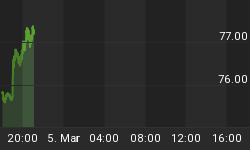Citigroup is in deep trouble. Its share price is $1.95 and the market is recognizing what I said a year ago: "Citigroup Is Insolvent". Of course it is not just Citigroup that is insolvent, the entire global banking system is insolvent.
Nonetheless, Citigroup pretends otherwise.
Inquiring minds are reading Citi presses officials to take 40% stake.
Citigroup is pressing the US government to agree on a new capital injection that would increase the authorities' stake in the troubled bank to about 40 per cent but stop short of an outright nationalisation.
People close to the situation said Citi executives had been in discussions with regulators during at the weekend over a plan that would enable the government and other shareholders to convert up to $75bn of preferred shares into common stock.
According to its proponents, the injection of common stock would bolster Citi's capital base while at the same time allaying market fears of a nationalisation. Under the plan, first revealed by the Financial Times last week, Citi could also try to raise fresh equity with a public share offering. The aim would be to keep the government stake to no more than 40 per cent or at least below 50 per cent, said people familiar with the plan.
People familiar with the plan said it would hinge on the price at which the government and other shareholders, which include sovereign wealth funds and Prince Al Waleed, convert their shares as well as how many of its $45bn-worth of shares the government converts.
Top Government Officials - who are trying to establish seeking a want a more strategic and less ad hoc response to the crisis - were and are anxious to avoid if possible the type of Sunday night crisis announcement that became a staple for Hank Paulson for 's crisis management at the Treasury last year.
The Treasury said secretary Tim Geithner would "preserve a financial system that is owned and managed by the private sector".
Citigroup Is A Black Hole
Citigroup is a black hole, sucking in every dollar thrown at it and it still wants more. No amount seems enough to save it. Taxpayers have already guaranteed a whopping $300 billion dollars worth of Citigroup debt. Now, two months later, Citigroup is begging for still more capital, pretending that will save it.
Tim Geithner's Brain Is A Black Hole
Not only is Citigroup a black hole from which no taxpayer dollars can escape, but Geithner's brain is a black hole from which no intelligent thought can escape.
How the hell can you preserve a system this way? The answer is you can't. Nonetheless the Obama administration tries to end bank nationalization talk.
The White House on Friday insisted it's not trying to take over two ailing financial institutions, even as stocks tumbled again. On Wall Street, talk of nationalization of Citigroup Inc., and Bank of America Corp., prompted investors to continue to balk, worried that the government would have to take control and wipe out shareholders in the process.
Spare me the sap.
Geithner is attempting to bail out his banking buddies, no more, no less, and he does not give a damn what it costs taxpayers to do so. And while everyone and their brother has hopped on the Nationalization Train (please see The Nationalization Train Has Left The Station), I think there are at a bare minimum a half dozen questions that need to be addressed first (please see Nationalization Revisited).
Citigroup is struggling to remain independent even as it knows full well, that without still more government intervention, it is worthless. In fact, Citigroup is less than worthless because without more taxpayer cash infusions it cannot survive.
To hell with Citigroup. Bust it up and sell it. It's the best possible outcome for everyone involved.















